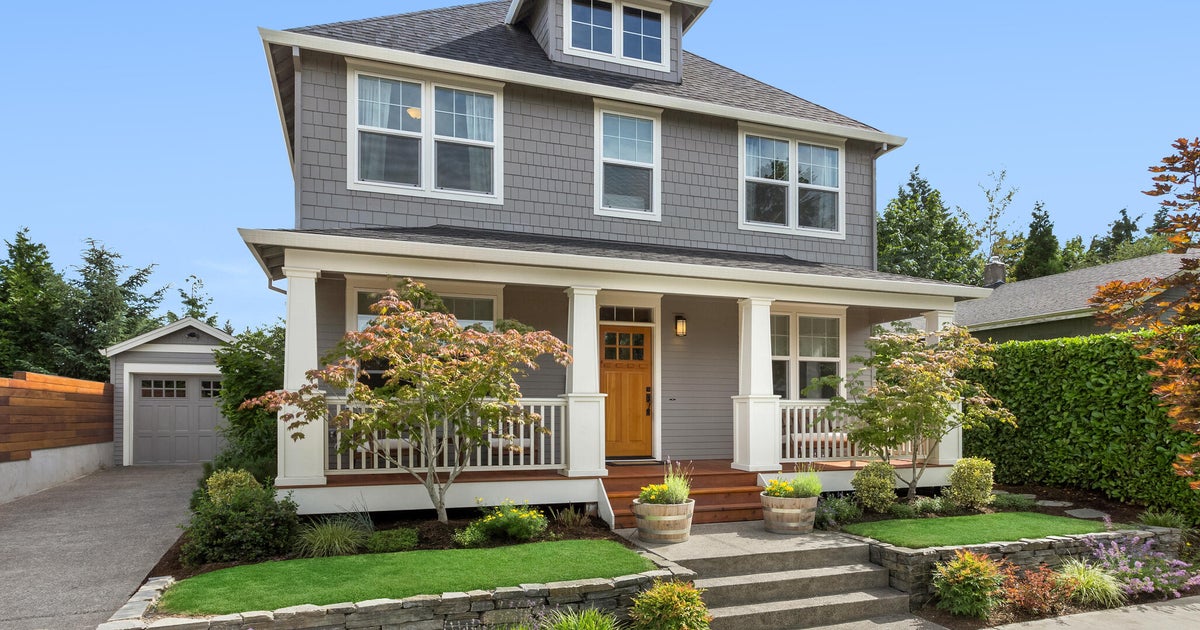Will home prices finally drop this summer? Here's what experts say
When interest rates plummeted during the pandemic and many people reevaluated where they wanted to be in life, a flurry of real estate activity caused home prices to soar. Today, the nationwide average price of a home is $438,601, up significantly compared to the average home price of $298,669 five years ago.
However, some prospective buyers have held off on purchasing new homes due, in large part, to high mortgage rates and low housing inventory. As they wait, many are hoping to at least see home prices drop. But do experts foresee that happening this summer? Here's what you should know.
Find out the top mortgage loan rates you may qualify for here.
Will home prices finally drop this summer? Here's what experts say
Here's what experts have to say about whether home prices are likely to decline over the next couple of months.
Why home prices might not budge much
According to many real estate experts, home prices seem unlikely to decline much, if at all, over the next few months. And if they do drop, it could be more of a seasonality issue, rather than a long-term trend.
"I am expecting home prices to remain steady or decline marginally over the course of the summer, likely less than an average of 1%, very insignificant. This time of the year is historically slow for home sales with people traveling and enjoying their summers rather than home shopping," says Jared Blumberg, licensed real estate salesperson at Compass.
But even if demand slows a bit, today's mortgage interest rates aren't the only factor making the overall cost of homebuying more expensive. Limited inventory is also a big issue, as many potential sellers don't want to sell their homes and shop for mortgages now, as they could be giving up low mortgage rates for a higher one.
At the same time, if interest rates decrease, then that could cause more buyers to rush in and drive up prices. So, a big part of the equation will likely be the supply vs. demand balance.
"I don't believe that prices will decline this summer," says Kevin Leibowitz, founder, mortgage broker at Grayton Mortgage, Inc. "We're still below the inventory prior to Covid, despite having interest rates that are much higher. Unless we have a substantial spike in inventory, then I don't see how we will have a price decline."
Meanwhile, the relatively strong economy puts upward pressure on home prices.
"The strong labor market and continued consumer spending also create a supportive environment for housing prices. Until we see a significant uptick in housing inventory, any potential drop would likely be minimal and/or concentrated in a few localized markets," says Kelly Misuknas, senior director of capital markets at Better.
As she points out, though, it's possible that local conditions differ. When you shop for mortgage lenders and houses, it's important to not get too caught up in the national trends and instead see what's possible for your situation.
"If you look closely at specific cities, locations, and product types there are amazing deals to be had out there. You just have to know where to look. For example, in Manhattan where I concentrate my business, we are seeing considerable prices drop when compared to the overlying national data," says Blumberg.
Explore today's top mortgage loans and compare rates now.
What could cause home prices to drop?
While many experts do not foresee much likelihood of housing prices falling this summer, it could be worth keeping an eye on certain conditions that could lead to decreases.
"For substantial price drops to occur, we'd need to see a combination of factors, including a significant increase in inventory, lower mortgage rates, and shifts in economic conditions or policy. However, given the current market strength, such a dramatic change seems unlikely in the near term," says Madison Sutton, licensed real estate salesperson at Serhant.
"In my opinion, things will need to shift starting at the top; the frustrations we're hearing don't just affect a singular market. We're dealing with a nationwide accessibility and affordability issue, if not a crisis, that's having a psychological and economic impact on homebuyers today as well as generations to come," she adds.
These changes at the top could involve a mix of monetary and fiscal policy, such as those that affect mortgage rates and inventory.
"The Federal Reserve's future decisions on interest rates could potentially lead to lower mortgage rates, making homeownership more accessible. However, the Federal Reserve's indications to cut only once before the end of the year have also caused hesitation among buyers and sellers alike. As we navigate an election year, suggestions of new policies and regulations might emerge that could positively impact the housing market," says Sutton.
Still, it could be difficult to change the overall supply and demand dynamics.
"Even if mortgage rates decline and inventory increases, there is so much pent-up demand from potential home purchasers that it's unlikely home prices would decline in a material way," says Misuknas.
The bottom line
The real estate market seems unlikely to experience significant price decreases nationally this summer, but it's possible that in specific local markets, there will be dips. Still, until conditions change, like with more housing inventory, it could be tough for prices to decrease. Even then, it could take time for pent-up demand to temper, but it's possible that overall affordability at least increases, such as if mortgage rates drop.




